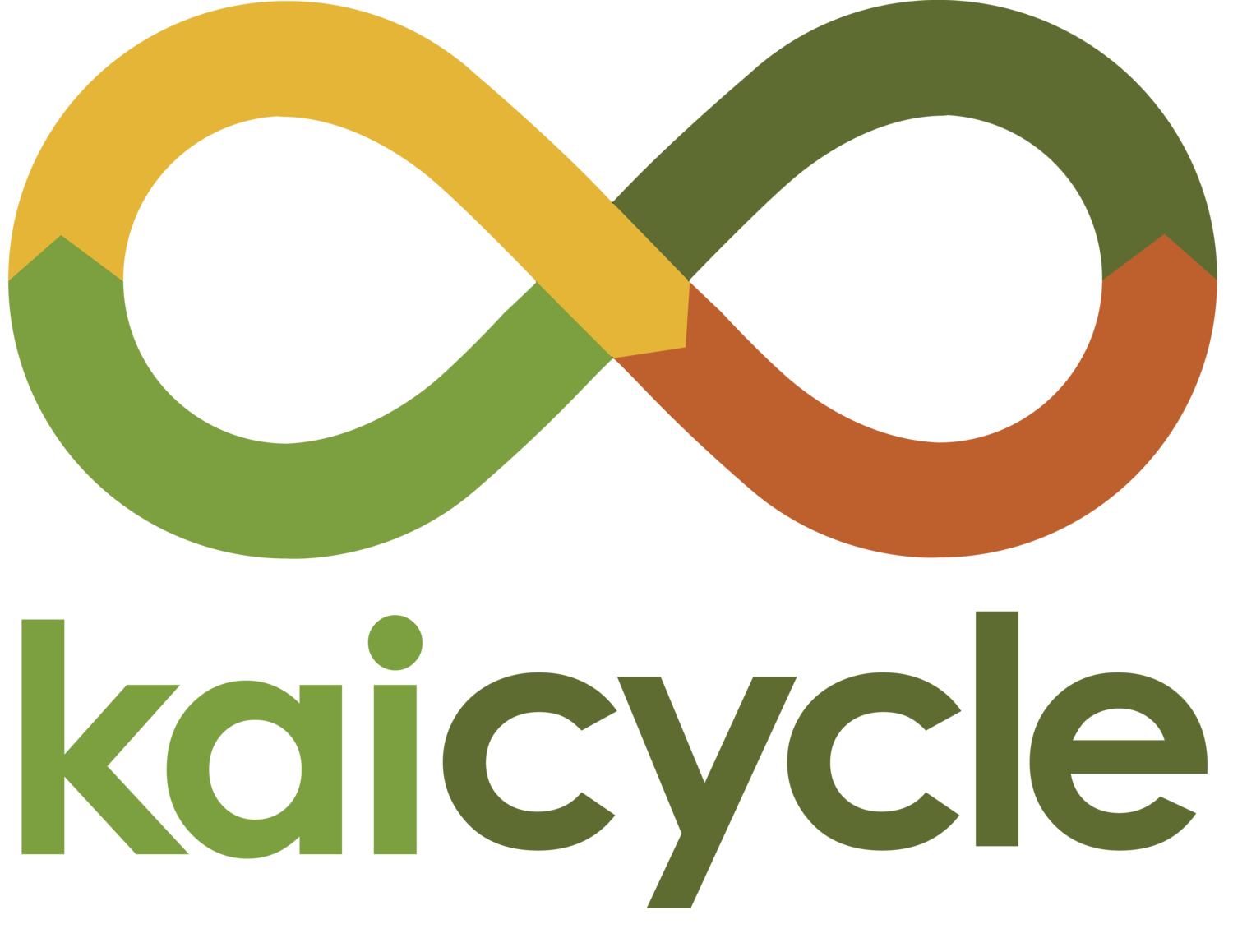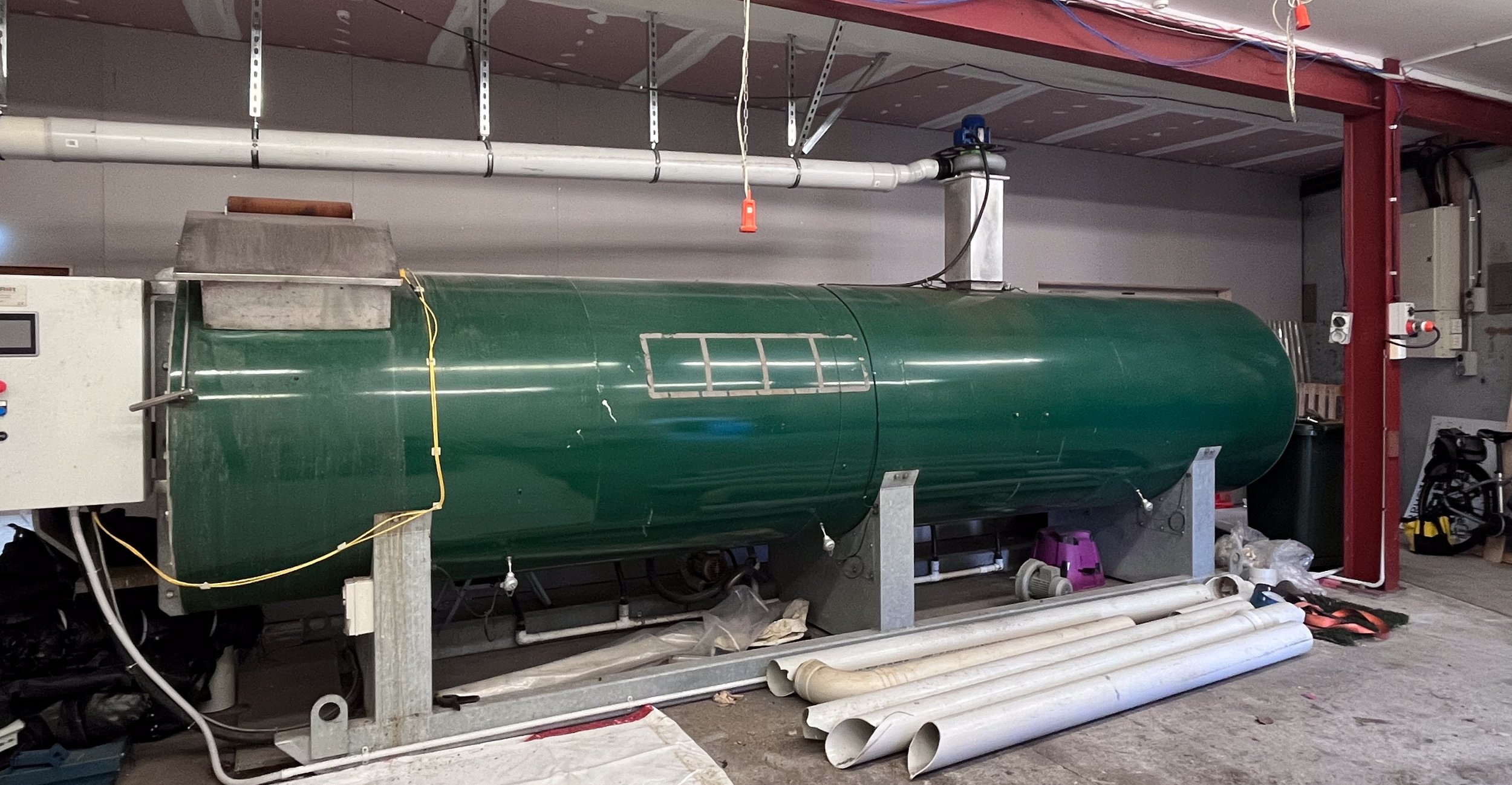Last week, we received the Code of Compliance Certificate from the Council for our composting hub! As did our tenant, Yum Jar’s kitchen! Sounds boring, and this piece of paper doesn’t look like much at all, but it’s what Kate from Kaicycle and Ottilie from Yum Jar have been working toward for over a year. Now that we have it, we can at long last start operating on site. This is great news and much-needed timing.
Matariki Friday was our first day of composting using our HotRot!! This was incredibly exciting. We started this expansion journey by applying for funding about two and a half years ago. To have finally got to this point and past all the hurdles feels fantastic. Thanks to Ro, Baz and Charlie who gatecrashed our first day and helped out!
Now, it’s time to hone our skills using this new system and make more lovely living compost.
There’s quite a story behind the in-vessel composting unit–the big green steel tube–that is the main feature of our new compost hub.
Our Hotrot’s story begins with its previous life, in Tāmaki Makarau with a company that sells compostable nappies and was investigating collecting them back to compost them.
We got wind that they were selling their secondhand machinery packaging at a bargain. This was before we had a new site. Plan A, B and C for storing it all fell through, but luckily Wellington City Council (our main funders) could help us out with a temporary storage site while we continued our hunt.
We realised that the Hotrot still contained some nappy compost… fortunately well composted with no nasty smells! This posed a tikanga issue, as human waste is tapu, and food growing and food is noa. We’re very grateful to Te Kawa Robb and Ihaia Puketapu who generously gave us guidance on navigating this issue, and gave us the confidence to undertake a whakanoa process.
The first step was to empty the nappy compost. We (Liam and Kate) spent a few afternoons excavating the contents of the Hotrot–we were well inside the machine. A challenge for Liam at over 6 feet! Some spots were rock-hard so we had to use pickaxes! We looked more like coal miners than composters, with our head torches on and covered in grime.
We filled 5 or 6 large wool fadges with old nappy compost and had to figure out what to do with it all. We reached out to Te Waka Kai Ora, our Hua Parakore whānau, and friends and colleagues with tikanga expertise for their whakaaro. We were fortunate to receive so much wise and thought-provoking advice. It was a valuable learning journey for us. Besides the tapu element of this compost containing human waste, we were worried about the likely presence of microplastics and chemical additives in the nappy compost, at levels we wouldn’t know, and their impacts on soil and kai. Ultimately, weighing everything up, we decided the best option (not really a great option at all) was to send it all to the landfill so that those contaminants and the tapu of the compost could be as safely contained as possible.
Huge thanks to Tod Coxhead, our key volunteer for this project, who helped us with numerous practical tasks–including taking off the ends of the machine so we could clean it, sealing them back on, helping us remove and clean a nasty blocked part of the air injection system, and making our biofilter.
Once the machine was empty, we cleaned it thoroughly with wai māori using a water blaster. Wai is often used to help lift a state of tapu. Finally, we held a blessing ceremony with a few of our Kaicycle whānau, to finish lifting the tapu and set the project off going forward through karakia, kōrero and waiata.
As for the purpose of the project: This machine is helping us scale up as it turns compost for us, saving labour and keeping our backs happier, and it can process more on a smaller footprint. It will churn out a thoroughly pasteurised, more consistent product, meaning we can start selling compost to help cover costs. Scaling up means we can help more local businesses and households divert their food scraps from our landfill, saving emissions and pollution. It means we will produce more good, living compost to enrich local soils. It means we can donate more compost to support schools, marae, and community gardens to achieve their food-growing aspirations. We are testing a medium-scale, urban composting model that could be replicated and support a resilient local organics processing system in Te Whanganui a Tara, that advances food sovereignty, climate action, and community wellbeing.






